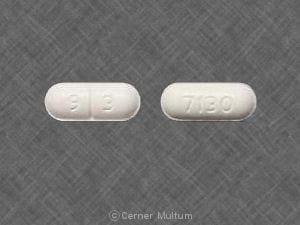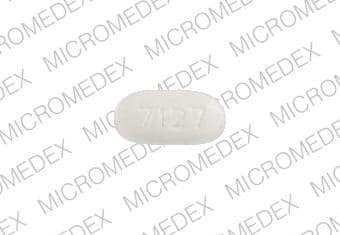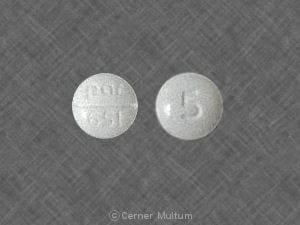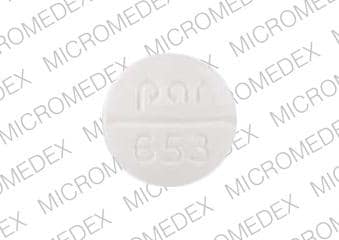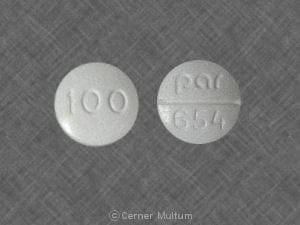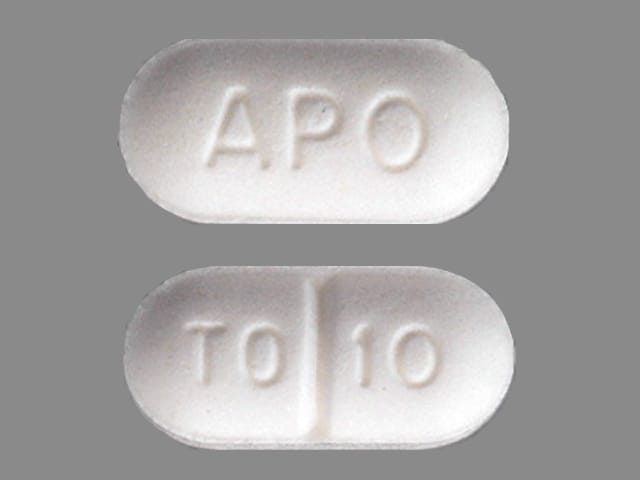What is torsemide used for?
- Torsemide is used to get rid of extra fluid.
- It is used to treat high blood pressure.
Before taking torsemide, tell your doctor:
- If you are allergic to torsemide; any part of this medicine; or any other drugs, foods, or substances. Tell your doctor about the allergy and what signs you had.
- If you are not able to pass urine.
- If you have liver disease.
- If you are taking any drugs that can raise the chance of hearing problems. There are many drugs that can do this. Ask your doctor or pharmacist if you are not sure.
This is not a list of all drugs or health problems that interact with torsemide.
Tell your doctor and pharmacist about all of your drugs (prescription or OTC, natural products, vitamins) and health problems. You must check to make sure that it is safe for you to take torsemide with all of your drugs and health problems. Do not start, stop, or change the dose of any drug without checking with your doctor.
What are some things I need to know or do while I take torsemide?
- Tell all of your health care providers that you take torsemide. This includes your doctors, nurses, pharmacists, and dentists.
- Avoid driving and doing other tasks or actions that call for you to be alert until you see how torsemide affects you.
- To lower the chance of feeling dizzy or passing out, rise slowly if you have been sitting or lying down. Be careful going up and down stairs.
- If you have high blood sugar (diabetes), you will need to watch your blood sugar closely.
- Check your blood pressure as you have been told.
- Have blood work checked as you have been told by the doctor. Talk with the doctor.
- If you are on a low-salt or salt-free diet, talk with your doctor.
- If you are taking torsemide and have high blood pressure, talk with your doctor before using OTC products that may raise blood pressure. These include cough or cold drugs, diet pills, stimulants, ibuprofen or like products, and some natural products or aids.
- This medicine is a strong fluid-lowering drug (diuretic). Sometimes too much water and electrolytes (like potassium) in the blood may be lost. This can lead to severe health problems. Your doctor will follow you closely to change the dose to match your body's needs.
- Tell your doctor if you have too much sweat, fluid loss, throwing up, or loose stools. This may lead to low blood pressure.
- You may need extra potassium. Talk with your doctor.
- Watch for gout attacks.
- Tell your doctor if you are pregnant, plan on getting pregnant, or are breast-feeding. You will need to talk about the benefits and risks to you and the baby.
How is torsemide best taken?
Use torsemide as ordered by your doctor. Read all information given to you. Follow all instructions closely.
- This medicine may cause you to pass urine more often. To keep from having sleep problems, try not to take too close to bedtime.
- Keep taking torsemide as you have been told by your doctor or other health care provider, even if you feel well.
- If you take cholestyramine, talk with your pharmacist about how to take it with torsemide.
What do I do if I miss a dose?
- Take a missed dose as soon as you think about it.
- If it is close to the time for your next dose, skip the missed dose and go back to your normal time.
- Do not take 2 doses at the same time or extra doses.
What are the side effects of torsemide that I need to call my doctor about immediately?
WARNING/CAUTION: Even though it may be rare, some people may have very bad and sometimes deadly side effects when taking a drug. Tell your doctor or get medical help right away if you have any of the following signs or symptoms that may be related to a very bad side effect:
- Signs of an allergic reaction, like rash; hives; itching; red, swollen, blistered, or peeling skin with or without fever; wheezing; tightness in the chest or throat; trouble breathing, swallowing, or talking; unusual hoarseness; or swelling of the mouth, face, lips, tongue, or throat.
- Signs of fluid and electrolyte problems like mood changes, confusion, muscle pain or weakness, a heartbeat that does not feel normal, very bad dizziness or passing out, fast heartbeat, more thirst, seizures, feeling very tired or weak, not hungry, unable to pass urine or change in the amount of urine produced, dry mouth, dry eyes, or very bad upset stomach or throwing up.
- Signs of high blood sugar like confusion, feeling sleepy, more thirst, more hungry, passing urine more often, flushing, fast breathing, or breath that smells like fruit.
- Signs of kidney problems like unable to pass urine, change in how much urine is passed, blood in the urine, or a big weight gain.
- Very bad dizziness or passing out.
- Ringing in ears.
- Hearing loss has rarely happened in people taking torsemide. This most often goes back to normal. The chance may be higher if you have kidney problems or if you take high doses of torsemide. Call your doctor right away if you have hearing problems like hearing loss.
What are some other side effects of torsemide?
All drugs may cause side effects. However, many people have no side effects or only have minor side effects. Call your doctor or get medical help if you have any side effects that bother you or do not go away.
These are not all of the side effects that may occur. If you have questions about side effects, call your doctor. Call your doctor for medical advice about side effects.
You may report side effects to the FDA at 1-800-332-1088. You may also report side effects at https://www.fda.gov/medwatch.
If overdose is suspected:
If you think there has been an overdose, call your poison control center or get medical care right away. Be ready to tell or show what was taken, how much, and when it happened.
Torsemide Images
How do I store and/or throw out torsemide?
- Store at room temperature.
- Store in a dry place. Do not store in a bathroom.
- Keep all drugs in a safe place. Keep all drugs out of the reach of children and pets.
- Throw away unused or expired drugs. Do not flush down a toilet or pour down a drain unless you are told to do so. Check with your pharmacist if you have questions about the best way to throw out drugs. There may be drug take-back programs in your area.
Consumer information use and disclaimer
- If your symptoms or health problems do not get better or if they become worse, call your doctor.
- Do not share your drugs with others and do not take anyone else's drugs.
- Some drugs may have another patient information leaflet. Check with your pharmacist. If you have any questions about torsemide, please talk with your doctor, nurse, pharmacist, or other health care provider.
- If you think there has been an overdose, call your poison control center or get medical care right away. Be ready to tell or show what was taken, how much, and when it happened.
This information should not be used to decide whether or not to take torsemide or any other medicine. Only the healthcare provider has the knowledge and training to decide which medicines are right for a specific patient. This information does not endorse any medicine as safe, effective, or approved for treating any patient or health condition. This is only a brief summary of general information about this medicine. It does NOT include all information about the possible uses, directions, warnings, precautions, interactions, adverse effects, or risks that may apply to torsemide. This information is not specific medical advice and does not replace information you receive from the healthcare provider. You must talk with the healthcare provider for complete information about the risks and benefits of using this medicine.
